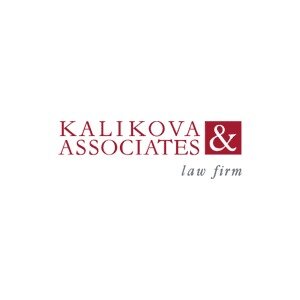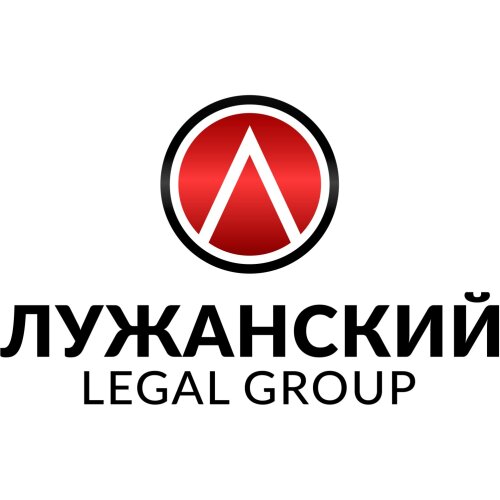Best Agriculture Lawyers in Kyrgyzstan
Share your needs with us, get contacted by law firms.
Free. Takes 2 min.
Or refine your search by selecting a city:
List of the best lawyers in Kyrgyzstan
About Agriculture Law in Kyrgyzstan:
Agriculture plays a significant role in the economy of Kyrgyzstan, with a large portion of the population engaged in farming activities. As such, there are specific laws and regulations that govern agricultural practices in the country. Understanding these legal frameworks is essential for farmers, agribusinesses, and other stakeholders in the agriculture sector.
Why You May Need a Lawyer:
There are various situations where you may require legal assistance in the field of agriculture in Kyrgyzstan. Some common reasons include disputes over land rights, contracts with suppliers or buyers, environmental regulations, agricultural subsidies, and compliance with government policies. A lawyer with expertise in agriculture law can help you navigate these complex legal issues and protect your rights.
Local Laws Overview:
Key aspects of local laws that are particularly relevant to agriculture in Kyrgyzstan include land use regulations, water rights, agricultural subsidies, environmental protection, livestock regulations, and food safety standards. It is important to be aware of these laws to ensure compliance and avoid legal pitfalls.
Frequently Asked Questions:
1. Can foreigners own agricultural land in Kyrgyzstan?
Foreigners are generally prohibited from owning agricultural land in Kyrgyzstan, but they can lease land for agricultural purposes.
2. What are the requirements for registering a farm in Kyrgyzstan?
To register a farm in Kyrgyzstan, you need to submit the necessary documents to the local agricultural authorities, including information about the size of the land, crops or livestock to be raised, and environmental impact assessments.
3. Are there any subsidies available for farmers in Kyrgyzstan?
Yes, the government of Kyrgyzstan provides subsidies to farmers for various purposes, such as purchasing agricultural equipment, seeds, and fertilizers.
4. How are water rights regulated in Kyrgyzstan?
Water rights in Kyrgyzstan are regulated by the Water Code, which sets out the rights and responsibilities of water users, including farmers. Water users are required to obtain permits for water use and comply with conservation regulations.
5. What are the environmental regulations for agriculture in Kyrgyzstan?
Agricultural activities in Kyrgyzstan are subject to environmental regulations that aim to protect natural resources, prevent pollution, and promote sustainable farming practices.
6. How can I resolve a dispute with a supplier or buyer in the agriculture sector?
If you have a dispute with a supplier or buyer in the agriculture sector, you may need to seek legal advice to negotiate a settlement, mediate the dispute, or take the matter to court if necessary.
7. Are there specific regulations for livestock farming in Kyrgyzstan?
Yes, there are regulations that govern livestock farming in Kyrgyzstan, such as animal welfare standards, import/export rules, and disease control measures.
8. What are the food safety standards for agricultural products in Kyrgyzstan?
Agricultural products in Kyrgyzstan are subject to food safety standards that ensure the quality and safety of food for consumers. Farmers need to comply with these standards to sell their products in the market.
9. How can I apply for agricultural loans or financing in Kyrgyzstan?
You can apply for agricultural loans or financing through commercial banks, government programs, or international development agencies that support agricultural projects in Kyrgyzstan. It is important to understand the terms and conditions of the loan before applying.
10. What are the legal requirements for exporting agricultural products from Kyrgyzstan?
To export agricultural products from Kyrgyzstan, you need to comply with export regulations, obtain the necessary permits and certifications, and meet the quality standards of the importing country.
Additional Resources:
For legal advice and assistance in agriculture law in Kyrgyzstan, you can contact the Ministry of Agriculture, local agricultural associations, or law firms that specialize in agricultural law. These resources can provide valuable information and support for your legal needs.
Next Steps:
If you require legal assistance in agriculture in Kyrgyzstan, consider seeking advice from a qualified lawyer with experience in agricultural law. They can help you understand your rights, navigate legal challenges, and protect your interests in the agriculture sector.
Lawzana helps you find the best lawyers and law firms in Kyrgyzstan through a curated and pre-screened list of qualified legal professionals. Our platform offers rankings and detailed profiles of attorneys and law firms, allowing you to compare based on practice areas, including Agriculture, experience, and client feedback.
Each profile includes a description of the firm's areas of practice, client reviews, team members and partners, year of establishment, spoken languages, office locations, contact information, social media presence, and any published articles or resources. Most firms on our platform speak English and are experienced in both local and international legal matters.
Get a quote from top-rated law firms in Kyrgyzstan — quickly, securely, and without unnecessary hassle.
Disclaimer:
The information provided on this page is for general informational purposes only and does not constitute legal advice. While we strive to ensure the accuracy and relevance of the content, legal information may change over time, and interpretations of the law can vary. You should always consult with a qualified legal professional for advice specific to your situation.
We disclaim all liability for actions taken or not taken based on the content of this page. If you believe any information is incorrect or outdated, please contact us, and we will review and update it where appropriate.
Browse agriculture law firms by city in Kyrgyzstan
Refine your search by selecting a city.











